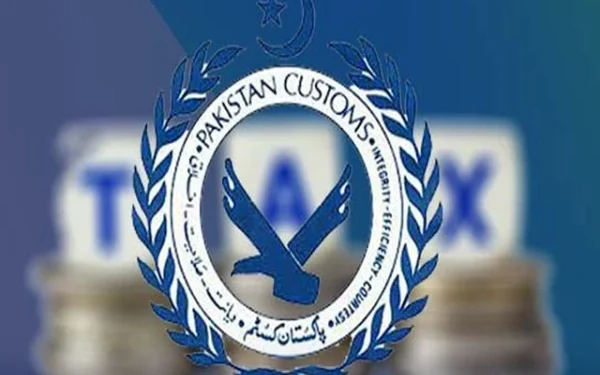Karachi, Pakistan – The Directorate of Customs Post Clearance Audit (PCA) has released its performance report highlighting a major breakthrough in the recovery of evaded customs duties and taxes. Over the past two years, the PCA has successfully detected customs evasion amounting to Rs 60.5 billion and recovered a substantial Rs 6.7 billion in revenue for the national exchequer.
This performance was disclosed in a two-year summary issued by the Customs Post Clearance Audit, operating under the Federal Board of Revenue (FBR). The report outlines not only the scale of tax evasion but also uncovers large-scale irregularities and financial misdeeds, especially in the import of high-demand goods like solar panels.
Understanding the Role of the Customs Post Clearance Audit
The Post Clearance Audit (PCA) is a specialized department within Pakistan Customs that focuses on the verification of import and export data after the release of goods. Unlike traditional checks performed at the border or ports, PCA reviews the legitimacy of transactions based on commercial documents, invoices, customs declarations, and tax payments retrospectively.
This system helps the government identify cases of misdeclaration, undervaluation, over-invoicing, and non-payment or underpayment of duties and taxes that may not be caught during initial clearance processes.
Leadership Behind the Operation: Dr. Zulfiqar Ali Chaudhry
The report credits the leadership of Director General Dr. Zulfiqar Ali Chaudhry, whose proactive strategies, intelligence-led investigations, and inter-agency coordination were instrumental in detecting discrepancies in customs declarations and import valuations.
Under his guidance, the Directorate has prioritized data-driven audits and used confidential information and intelligence-sharing to uncover fraudulent practices that had gone unnoticed for years.
Massive Revenue Recovery and Evasion Statistics
According to the performance summary:
- Total evasion detected over the last two years: Rs 60.5 billion
- Total revenue recovered during the same period: Rs 6.7 billion
These numbers reveal the significant scale of tax evasion and highlight the need for continuous monitoring and strict enforcement to curb illegal trade practices.
Breakdown by Region: South vs Central Directorates
The PCA is divided into multiple regional directorates, with South and Central zones showing notable activity.
1. Customs Post Clearance Audit South (Karachi)
- Tax evasion detected: Rs 48 billion
- Revenue recovered: Rs 2 billion
Being home to Pakistan’s busiest port, Karachi sees the highest volume of imported goods, making it a hotspot for customs evasion. The PCA South Directorate has been especially active in identifying misdeclarations, especially related to high-value and duty-sensitive imports such as electronics, machinery, and solar equipment.
2. Customs Post Clearance Audit Central
- Tax evasion detected: Rs 12.5 billion
- Revenue recovered: Rs 4.7 billion
Operating primarily from Lahore, the Central Directorate has a relatively lower volume but has outperformed in terms of recovery efficiency, managing to recoup almost 38% of the total evasion detected.
Rs 1.2 Trillion Money Laundering via Solar Panel Imports Exposed
One of the most alarming revelations in the report is the exposure of money laundering worth Rs 1.2 trillion linked specifically to solar panel imports. The PCA South Directorate uncovered a massive over-invoicing scheme where importers were found to inflate the declared value of imported solar panels.
How the Scheme Worked:
- Importers submitted falsified invoices declaring inflated values.
- The excess money transferred abroad under the guise of legitimate trade payments was used for money laundering.
- Actual market value of the imported goods was significantly lower than declared.
This practice allowed black money to be whitened and transferred to foreign accounts, violating not just tax laws but also anti-money laundering (AML) and foreign exchange control regulations.
Over-Invoicing and Trade-Based Money Laundering: A Growing Threat
Trade-based money laundering (TBML) is increasingly being used to bypass banking regulations and move illicit funds across borders under the pretense of trade. Over-invoicing, as seen in the solar panel case, is one of the most common forms.
The consequences are severe:
- Distortion of import statistics
- Devaluation pressure on the Pakistani rupee
- Loss of tax revenue
- Hindrance to fair market competition
By manipulating trade documents, offenders successfully evade taxes and duties, while simultaneously moving massive funds to offshore accounts.
Pakistan’s Solar Industry and Vulnerabilities
The rise in solar energy adoption in Pakistan has led to a surge in solar panel imports, making the sector a target for misuse. As solar equipment is often eligible for duty exemptions or concessions, the opportunity for fraud increases.
Some key points:
- Solar imports have increased due to government subsidies and tax waivers aimed at promoting renewable energy.
- These incentives, although beneficial in encouraging green energy, have been exploited by unscrupulous importers.
- Loopholes in regulation and lax oversight at customs clearance points have allowed fraudulent declarations to go unchecked — until now.
Policy Implications and Recommendations
In light of the findings, policymakers and regulatory bodies must consider enhanced safeguards to prevent further revenue losses and illegal financial flows.
Key Recommendations:
- Integration of Customs and Banking Data:
- To track payments made abroad and cross-verify with declared import values.
- Stronger Enforcement of AML Regulations:
- Penalize individuals and companies involved in over-invoicing and money laundering.
- Randomized Physical Inspections:
- Even post-clearance, physical audits of high-risk goods should be conducted.
- Customs Valuation Benchmarks:
- Maintain updated reference prices for commonly imported items, especially solar products and electronics.
- Interagency Collaboration:
- Strengthen cooperation between FBR, State Bank of Pakistan, FIA, and SECP to investigate and prosecute financial crimes.
Impact on National Economy and Fiscal Stability
Recovering Rs 6.7 billion is a significant achievement, but the real story lies in the Rs 60.5 billion in detected evasion, and the staggering Rs 1.2 trillion in laundered money through solar imports.
This suggests:
- A leakage in government revenue that could otherwise fund public services, infrastructure, and education.
- Distortion in the domestic market, as honest importers face unfair competition from those exploiting legal gaps.
- Reduced investor confidence in regulatory systems and transparency.
Public and Private Sector Reaction
Industry experts and anti-corruption watchdogs have praised the Directorate’s efforts. However, business associations have urged caution, emphasizing the need to differentiate between genuine mistakes and deliberate fraud.
The Karachi Chamber of Commerce and Industry (KCCI) noted that while fraud must be punished, innocent businesses should not be harassed in the name of audits.
Conclusion: A Step Toward Economic Accountability
The report by the Customs Post Clearance Audit Directorate marks a major milestone in Pakistan’s efforts to curb tax evasion, enforce compliance, and expose illicit financial flows. With over Rs 6.7 billion recovered, Rs 60.5 billion in evasion exposed, and Rs 1.2 trillion in money laundering detected, it reflects a growing institutional capacity for financial accountability.
Moving forward, strengthening post-clearance auditing, tightening AML regulations, and improving inter-agency coordination will be essential to sustain and build on this progress.

























